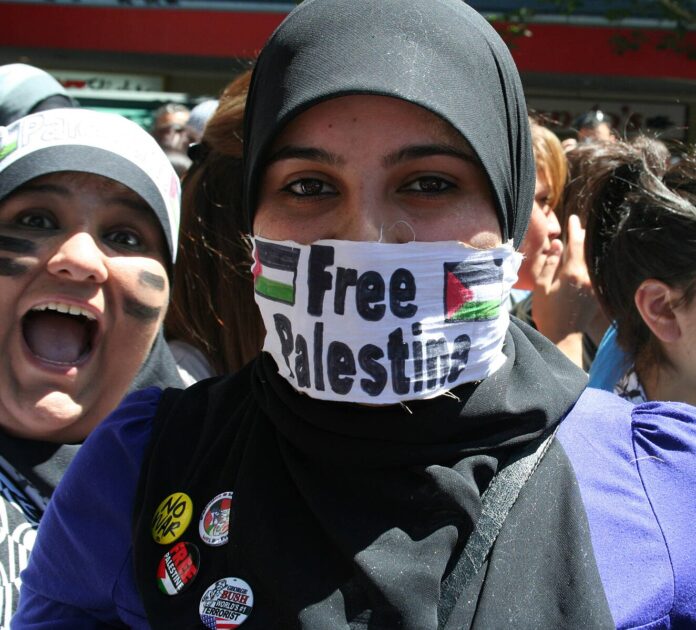I am writing this short commentary to bear witness of the ethnic cleansing that is going on since 7 October. As I write this short text, over 13000 including 5000 children have been killed by Israel in Palestine (Gaza and the West Bank), many thousand people are missing under the rubbles and as many have been displaced from their homes. Twelve-hundred people have been reported to have been killed in Israel by Hamas, and over 200 people have been abducted by Hamas.
It is important to historicise the current genocide which many observers and Palestinians themselves have called the second Nakba. The People of Palestine have survived and continuously resisted seven decades of occupation and violations of their basic rights. Their genocide has taken many forms: occupation, waves of land and sea grabs, dispossession, expropriation, displacement, assassinations, sexual violence. The genocide we are witnessing did not start today. This violence has been going on for 41 days…and 75 years. And it has continued because of the many green lights, or lack of reactions to the countless acts of violence that the Israeli apartheid state has inflicted for decades. But most importantly, the spree of violence started with hate speeches and with the slow and insidious dehumanisation of Palestinians through the routinisation of their deaths. A social death. Countless, faceless scores of fatalities, wounded, jailed, and displaced civilians have over the decades been buried under seconds-long reporting at the radio or on TV, paragraph-long accounting of loss of lives in newspapers.
If we have learnt one thing from the genocide in Rwanda, it is that every genocide, every project of ethnic cleansing starts with the dehumanisation of the target social groups. Social death is the first step to a group’s physical annihilation. The concept of ‘social death’ was first coined by Horace Orlando Patterson in 1985, and it is no coincidence that Patterson’s book is a comparative study of Slavery and Social Death. Nine years after that book, the Rwanda genocide took place, but it did not start in 1994, it started long before, when the Belgian colonisers started measuring skulls and ethnicising them, and later when the Hutu-dominated government started by calling the target Tutsi groups ‘Inyenzi’ or ‘cockroaches’ to signify that they lacked humanity, that they believed them not to be worthy of life. Later, after reading Gilbert Gatore’s The Past Ahead, Jean Hatzfeld’s Season of Machetes, Boubacar Boris Diop’ s Murambi, the Book of Bones and Scholastique Mukasonga’s Cockroaches, we promised with the International Tribunal Court for Rwanda, and the Gacaca courts that ‘never again’, would we let such atrocities be committed, at least ‘not in our names’.
But I want us to understand that what is happening in Gaza and the West Bank of Palestine is (and always was) the next step by the Israeli state in the project of murder of Palestinians. It is but the next step of a carefully planned and executed land and sea grab by social death under the cover of the right of self-defence. When has self-defence ever meant the systematic ethnic cleansing of civilians? When has one group’s right to existence meant a death sentence for another social group?
I want us to be clear on the fact that the current militarised genocide is a political issue, is a feminist issue, is a reproductive justice issue, is an economic issue, is an environmental justice issue, is an agrarian justice issue, is an ethical issue, is a sovereignty issue.
It is a war on Palestine’s societal and social reproduction.
In a 2011 article, SOAS feminist political economist Shirin Rai and her co-authors describe such condition of loss, without any future plan for replenishment that might remedy it as Social Reproduction through Depletion. The use of forbidden and brutal weapons of mass destruction, including white phosphorus on civilianpopulations, the destruction of hospitals and vital infrastructures such as roads, water tanks, electricity, and means of transportation, the pollution of natural resources, and livestock and the poisoning of crops is a clear indication of the intent to dispossess permanently Palestinians across age, religion, and class status of their means of production.
The objective of the settler colonial state of Israel is clear: it is the depletion of those engaged in social reproduction through starving the labour force to prevent them from meeting their necessary calorie intake, through burning social infrastructures so their basic needs for food and energy, housing, health and safety, hygiene (including sanitary pads for women and girls, and care services for the sick and the pregnant), are unmet. The objective is also carried out through destroying and poisoning nature, through destroying universities and mosques and places of community assembly. Israel is attempting to kill the Palestinian spirit and hijack the reproduction of their social cultural capital – Palestinians are reputed to be the World’s most ‘educated refugees’.
The ultimate goal of Israel – and the Western powers that support this settler colonial and Apartheid state – is to render impossible the social and societal reproduction of Palestinians, and eventually to lead them to their physical death. This is but one of the many faces of fascism and racist, settler colonialist capitalism. We must neither be silent nor think it is happening in a remote faraway land. At the same time, we are calling for an absolute ceasefire, the return of Israeli and Palestinian hostages, we should also seek reparations for the loss of lives and damage to nature as well as a complete reform of the current international governance architecture. We cannot trust our future to powers we don’t trust as they have shown us whose interests they represent, and whose lives matter to them.
What Israel is committing in Palestine should be a wake-up call to all the countries in the Global South and across the world. What is happening to Palestine, Sudan, the Democratic Republic of Congo, Haiti, will determine our common future, the fruits of our anti-colonial struggles, and our ultimate sovereignty.
Therefore, I would like to conclude by sharing this powerful message in the form of a tweet from Issa Shijvi on 1 November 2023:
Voices of the world
Say it loud
Say it clear
‘We shan’t tolerate
Another genocide on our planet
There’re no ‘ifs’ and ‘buts’
There’s no balance between genocidaires & victims
There is no equivalence between Occupiers and occupied.
Ceasefire immediately
End settler colonialism!’
Rama Salla Dieng is a Senegalese writer, academic and activist. She is currently a Lecturer in African and International Development at the Centre of African Studies, University of Edinburgh. Rama is also a feminist activist who has collaborated with several feminist organisations on agrarian change, gender and development, and social reproduction. Rama has written this text in a personal capacity.
Photo: Protest for the Palestinians of Gaza against the brutal attack by Israel in January 2009, Melbourne (John Englart, 18 January 2009).
Some important texts and petitions:
Palestinian BDS Committee Boycott list
Collective of Agrarian Scholar Activists from the South
This excerpt was originally posted here on www.roape.net.
Read the text in French: Pourquoi la Palestine est une question féministe et anticoloniale
Read the text in Arabic: لماذا تعتبر فلسطين قضية نسوية ومناهضة للاستعمار؟
Read the text in Spanish: Por qué Palestina es una cuestión feminista y anticolonial
Read the text in Portuguese: Por que a Palestina é uma questão feminista e anticolonial
Publisher: Source link











